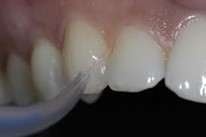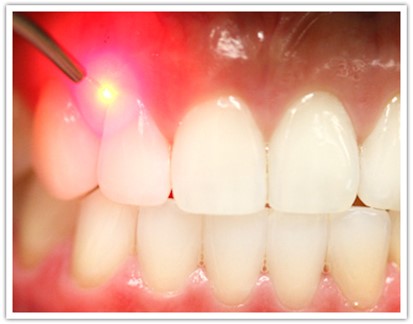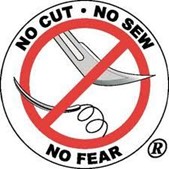Dental Laser the size of a Toothbrush? YES! But its not a Toy….

What is Laser Dentistry? Some of my patients were having a difficult time healing from gum disease, otherwise known as gingivitis. After utilizing all the “tricks of the trade” I knew, I would have to refer them out of my practice to a gum specialist, or periodontist. The common denominator for treatment for my referred patients was Laser Treatment — “Laser Bacterial Reduction Therapy,” or “Laser-Assisted Periodontal Therapy.” After 4-8 treatments, these patients looked amazing AND they consistently said there was no pain. Ever. Not during treatment, not after. I had to learn more! So I furthered my education, and this is what I found:
What is a laser and how does it work?
A laser is an instrument that produces a very narrow, intense beam of light energy. When laser light comes in contact with tissue, it causes a reaction. The light produced by the laser can remove, shape, or desensitize soft tissue. (There are dental lasers that can cut hard tissue like teeth and bone, but I chose a soft tissue diode laser since I have no interest in cutting bone.)
Dental lasers have been used in dentistry since 1990. Lasers are used as a safe and effective treatment for a wide range of dental procedures and are often used in conjunction with other dental instruments.

Laser Bacterial Reduction Therapy
Dental lasers can be used to:
- reduce the discomfort of canker, cold and denture sores.
- expose partially erupted wisdom teeth.
- remove muscle attachments that limit proper movement or cause gum recession due to their strong pull
- manage gum tissue during impressions for crowns or other procedures.
- remove overgrown tissues caused by certain medications.
- perform biopsy procedures.
- remove inflamed gum tissues and aid in the treatment of gum disease.
- remove or reshape gum and bone tissues during crown lengthening procedures.
- help treat infections in root canals.
- speed up tooth whitening procedures.

What are the benefits of using dental lasers?
There are several advantages. I can provide the Laser Bacterial Reduction Therapy during a simple cleaning in pulse mode without having to administer anesthesia. In fact, reducing the sores’ sting is also done without shots of anesthesia. This wonderful factor allows my patients to enjoy a more relaxed dental experience. Laser procedures can be more precise. Also, lasers can reduce symptoms and healing times associated with traditional therapies and control bleeding during surgery.
Recently I had a patient whose gum had started to overgrow on the last tooth on her lower left, not allowing her to close down on that side; it was too painful. Two years ago she had the same problem on the other side. I had to give her 8 shots, use a scalpel to cut the excess inflamed gum tissue, then give her two stitches, which had to be removed a week later. This time, she had 3 shots, I laser-cut the tissue away, which was immediately cauterized (stopped bleeding). No stitches, no second appointment, and the patient was able to eat when the numbness wore off.

Removing excess gum tissue over the last tooth lower left.
Are dental lasers safe?
If the dental laser is used according to accepted practices by a trained practitioner, then it is at least as safe as other dental instruments. However, just as you wear sunglasses to protect your eyes from prolonged exposure to the sun, when I perform a laser procedure, you will be asked to wear special eyeglasses to protect your eyes from the laser. Always make sure the dentist/hygienist has the proper certification to perform laser dentistry.
My laser is cordless, lighter than my drills, and uses a disposable tip, which eliminates operator error in cutting the laser tip. More importantly, my patients don’t feel pain. In fact, I’ve used them to ELIMINATE pain. For example, I have a patient I did a filling on the side of her upper left last molar. Kind of a tough place to get to. For the past 6 months she has had sensitivity in the tooth. In the past, I would have had to crown the tooth, or send her to see a root canal specialist for a consult. Instead, I used my laser to desensitize the tooth. All she felt was a little warmth. I had asked her to stay away from anything too cold for 3 days, just to be safe. We called her a week later and asked her about her sensitive tooth. She replied, “what sensitive tooth? Oh, that one! Yah, its fine now. Thanks!”
Final thoughts? I will now never have to send patients outside my office for a separate appointment for something I can now do myself for my patients in one visit. I will never have to lift a scalpel again. I will never have to worry if my patient is on blood thinners like Plavix or Aspirin again. Laser Dentistry is Modern Dentistry and I truly love it! Please contact me at: [email protected] to learn more!








